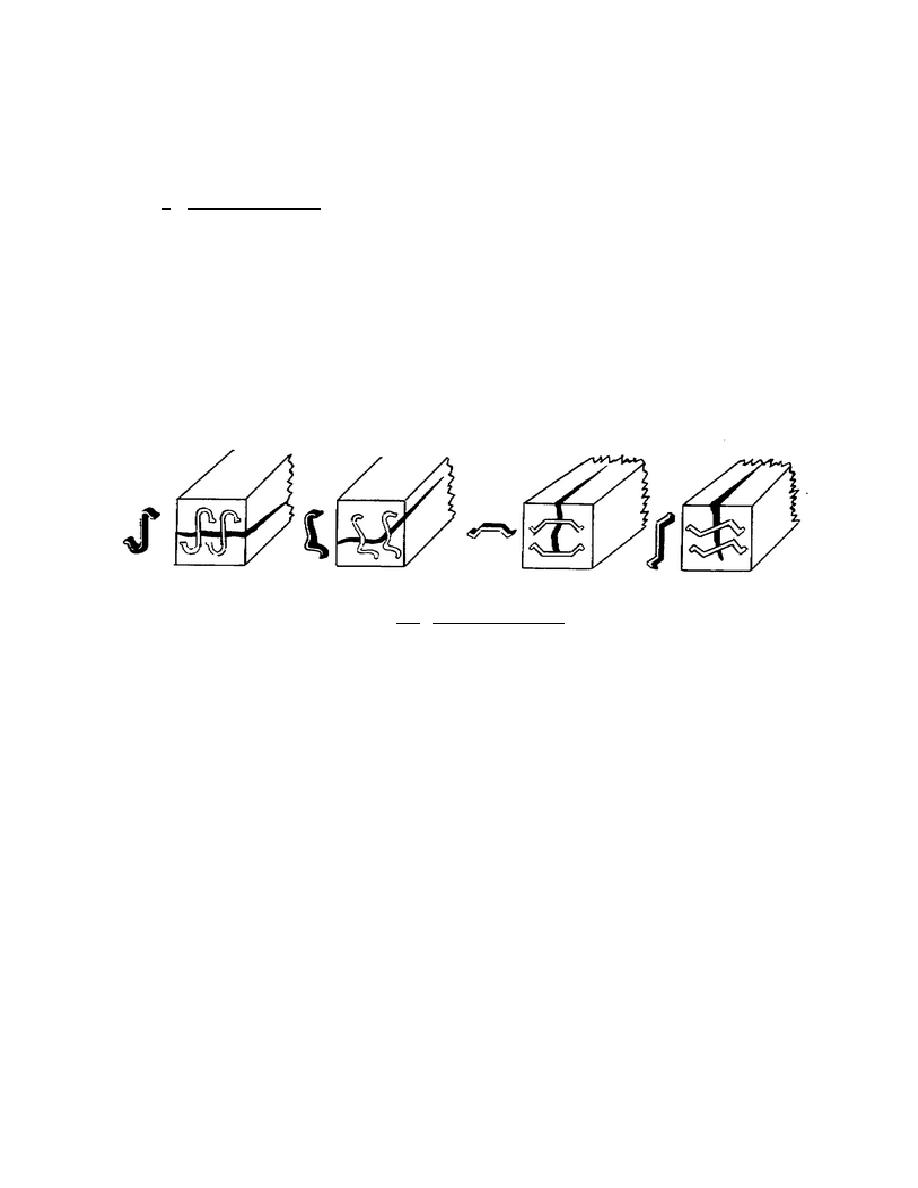
wood whereby those areas would be vulnerable to rot and decay. However, for military use and
especially for emergency or temporary tracks, adzing and boring beforehand may be dispensed
with.
b. Antisplitting irons. As ties season, the moisture in the wood near the surfaces tends
to dry more rapidly than moisture close to the center. As a result, internal stress builds up and
causes a checking or splitting of the ties. This is especially true of hardwoods. Checking is
undersirable since the cracks tend to hold water and fungi which produce rot. To reduce tie
failure because of checking, antisplitting irons are made in a number of shapes, some of which
are shown in Figure 3.5. The irons are bands of steel with sharpened edges that are driven into
the ends of ties. They should be so placed as to cross at right angles the greatest possible number
of radial lines of the wood. Do not use antisplitting irons while ties are still green or unseasoned,
or checking may begin. However, use irons early enough to prevent any checking that may start
in the normal seasoning process. Usually, irons are applied before or when ties are delivered to
the storage yard and stacked for seasoning.
Figure 3.5. Antisplitting Irons.
Crossties may be made of concrete or steel but are usually made of wood, or cheap resilient
material and one that allows the use of driven spikes to hold the rails. Both hardwoods and
softwoods are used. Ideal ties are straight but may be curved slightly as long as a straight line
drawn from one end to the other does not leave the edge of the tie. In the United States, standard
ties are 8' to 9' long and are placed 10 to 18 inches apart. For commercial use, wooden ties are
preserved by creosote or zinc chloride. Ties used in a theater of operations are not permanent
enough to warrant such treatment. Adzing and boring are done before the chemical is applied.
Drive antisplitting irons into the ends of ties to prevent checking. Always place the heartwood
side of the tree on the ballast. Stacking ties properly help prevent rotting and oil evaporation.
55



 Previous Page
Previous Page
